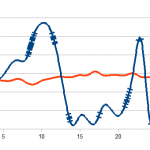Recent articles about how to learn Mandarin Page 40
-
How to improve your Chinese writing ability through focused reading
Everybody knows that if we want to improve our writing ability, we need to read more. But what should we read and how? With enough exposure, we can probably learn anything, but it’s much more efficient if we read with focus. If that focus coincides with the current weaknesses in our writing ability, supplemented with some targeted practice, we can improve our writing more quickly!
Read → -
Drills and exercises aren’t only for beginners
It’s commonplace to see workbooks used a lot in beginner courses, but the more advanced the students become, the less they are used. This is mostly for the better, but in this article, I argue that advanced students actually need more drilling than they (we) think. Being able to say or write what we want in one way isn’t enough, we need diversity and a bigger active vocabulary. Drilling is the only time-efficient way of achieving that.
Read → -
Preparing for rainy days and dealing with slumps
We all experience slumps in our learning, but there are many things we can do to reduce the negative effects of these slumps. The solution is three-fold: Preparing for the slump before it hits you, finding learning activities that don’t feel like work and paying attention to what you feel capable of at the moment. You will still experience slumps, but hopefully they will be less severe!
Read → -
Your slumps affect your language learning more than your flows
There are people who go on binges and study like maniacs for short periods of time, but then run out of steam and have slump lasting considerably longer. The problem with this kind of studying is that it really affects your average output. The best is to have a steady, regular performance that gives you the mileage you need without burning yourself out completely. This article examines this problem in greater detail and gives some suggestions for how to improve your slumps.
Read → -
About fossilisation and improving your Chinese pronunciation
It’s a fact that most foreign adults don’t acquire native like pronunciation in Chinese, but what’s the reason? In most debates at this point, someone will throw in the word “fossilisation”, as if that actually explained anything. This article is about why the concept of fossilisation is bunk and how we should think about adult pronunciation instead.
Read → -
What’s your next step to master Chinese?
Procrastination is a major problem facing anyone trying to learn Chinese outside class (which should include almost everyone because if you only do what you’re required to do in class, you won’t get very far). In this article, I share some ideas on how I handle big projects and intimidating tasks. The gist is that you need to break things down and you need to know what your next action is.
Read → -
5 websites to help answer your questions about Chinese
It’s not always easy to know where to go when you fail to find answers to your Chinese-related questions. This article gives some advice on how to ask for help online and also introduces five websites that offer help in various forms for free.
Read → -
Hacking Chinese meet-up in Taipei 2013-10-06
A new semester has just begun and it’s time for another Hacking Chinese meet-up in Taipei! The event is open for everyone who wants to join and talk about learning Chinese or other topics you find interesting. The meet-up will be held in Taipei, probably close to NTNU, on October 6th. Don’t forget to sign-up if you plan to join!
Read → -
Reading aloud in Chinese is really hard
Reading unfamiliar Chinese text aloud is very hard. This article sheds some light on why this is the case and what consequences it has for people who learn Chinese as a second language. In general, as a student, don’t feel down if you can’t read aloud well, because it really is very hard, and as a (native speaking) teacher, please understand that reading aloud in Chinese is much harder than you think.
Read → -
Phonetic components, part 2: Hacking Chinese characters
This is the second and final article about using phonetic components to hack Chinese characters and make it considerably easier to handle similarly looking characters. This article describes both the principles and gives plenty of examples that might resolve some of your current problems for you.
Read →








